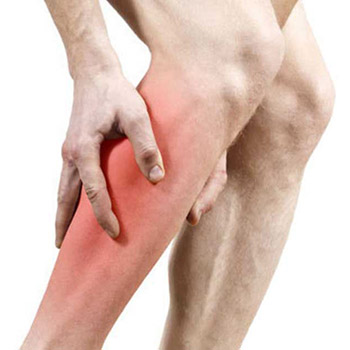Restless Legs Syndrome
You probably know a man who's hard to sit still. He often rises and makes a few steps ... It seems as he is not aware and is accustomed to it. The reason for what he is doing is not in nervousness - what most people think first, but in the restless legs syndrome. Restless Legs Syndrome (RLS) is a neurological disorder that causes unpleasant sensations in the legs and the need to move legs. Women get twice as likely as men. Symptoms usually occur in the evening or at night when the body calms down. Symptoms also occur during prolonged seating for a computer, a theater, or an airplane. When the legs move, the discomfort disappears, but it can quickly return. Because she also appears several times in her sleep, she is also considered sleep disorder.

The reason for the emergence of Restless Legs Syndrome?
In most cases doctors do not know the exact cause. There are many reasons for the emergence of restless legs. More than half of people have a relative who is facing the same problem. RLS syndrome also causes
chronic diseases such as Parkinson's disease, renal failure, diabetes, and peripheral neuropathy. In some cases, a restless syndrome stimulates iron deficiency and hormonal imbalance that occurs in puberty and in the last trimester of pregnancy. For people who are taking antidepressants, medication for colds or medication allergy, there is a more common occurrence of restless legs syndrome than in those who do not take these medications. Like other neurological diseases,
stress and an unhealthy way of life stimulate restless legs syndrome.
What are common signs and symptoms of restless legs?
A classic feature of RLS is that the symptoms are worse at night with a distinct symptom-free period in the early morning, allowing for more refreshing sleep at that time. Some people with RLS have difficulty falling asleep and staying asleep. They may also note a worsening of symptoms if their sleep is further reduced by events or activity.
RLS symptoms may vary from day to day, in severity and frequency, and from person to person. In moderately severe cases, symptoms occur only once or twice a week but often result in significant delay of sleep onset, with some disruption of daytime function. In severe cases of RLS, the symptoms occur more than twice a week and result in burdensome interruption of sleep and impairment of daytime function.


